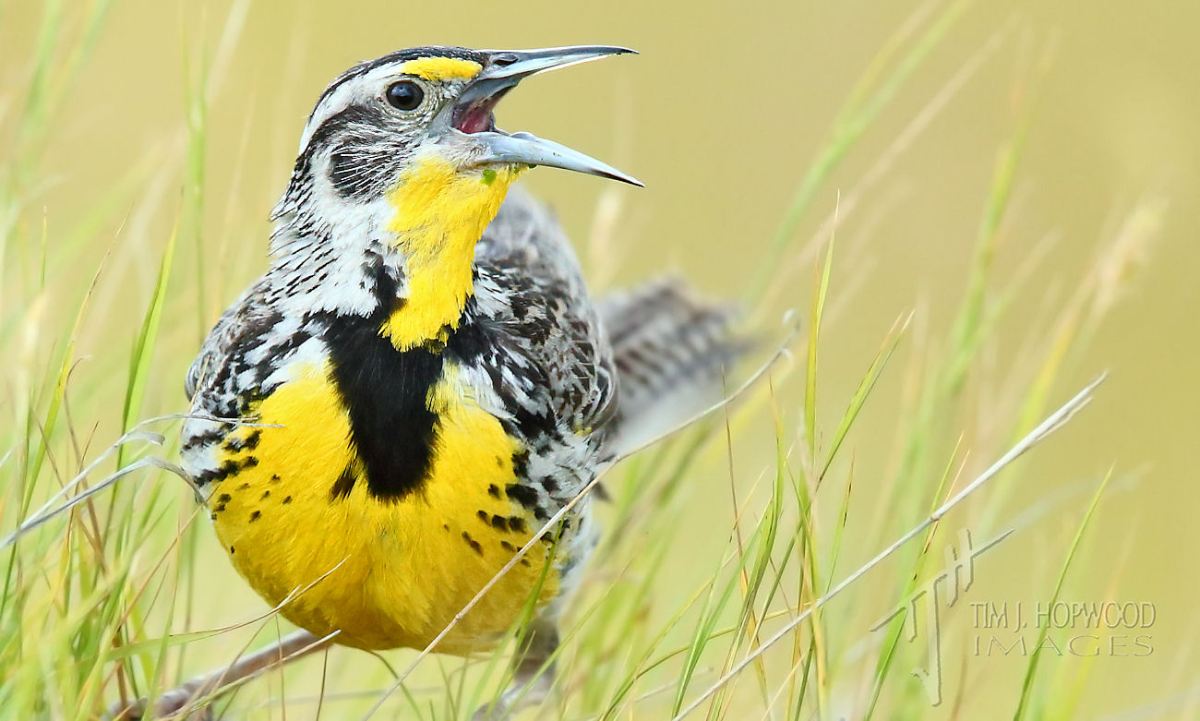
The Western meadowlark is one of many grassland birds that are imperilled because of conversion of grasslands to crop land. Photo courtesy of Tim Hopwood, Bird Canada.
A University of Alberta scientist has been invited to the United Nations Headquarters in New York City for the Global Landscapes Forum (GLF) in September 2019.
Focused on sustainable land use, the GLF takes place alongside the UN Climate Change Summit and is a major driver in shaping the strategic plan for the UN Decade on Ecosystem Restoration.
"The UN Decade on Ecosystem Restoration will run from 2021 to 2030, and as a participant, I will have the opportunity to directly contribute towards the drafting of this plan," said Timm Döbert, a postdoctoral fellow studying with Professor Mark Boyce in the Department of Biological Sciences. Döbert will bring his expertise in agriculture, landscape ecology, and soil carbon sequestration to New York City in September 2019.
Boyce and Döbert are on the cusp of an interdisciplinary five-year research program focused on evaluating adaptive multi-paddock (AMP) grazing for carbon sequestration and storage in grassland soils. Canada remains one of the world's largest greenhouse gas emitters per capita, largely due to the burning of fossil fuels and transportation. AMP grazing could provide a solution to offset emissions over and above the agricultural sector that makes both economic and environmental sense.
"Contrary to the common perception that raising beef is exclusively a source of greenhouse gas emissions, well-managed grazing on permanent grasslands can sequester two to three tonnes of carbon per hectare annually," said Döbert. "And for much of the northern Great Plains of Canada, cattle grazing is ecologically the best use of the land-so long as the grazing is managed well."
AMP grazing involves moving cattle from one location to another to graze based on forage quality, rather than continuously grazing in the same area. This system allows grasses and forbs to regenerate fully, rather than resulting in overgrazing and long-term ecosystem degradation.
"These systems are expected to not only benefit biodiversity conservation and ecosystem functioning, but also to diversify farm income and lead to more resilient cultivation systems," added Döbert. "By adopting more sustainable management practices and integrative approaches, farmers can develop agricultural systems that simultaneously meet socio-economic as well as environmental objectives." Such increased land stewardship will not only benefit grassland conservation but reduce the risk for conversion into cropping systems, which has been shown to result in an immediate loss of 30 to 50 per cent of soil organic carbon.
Keep apprised of the action at the Global Landscapes Forum on September 28, 2019 by visiting their website, or following the conversation on Twitter.